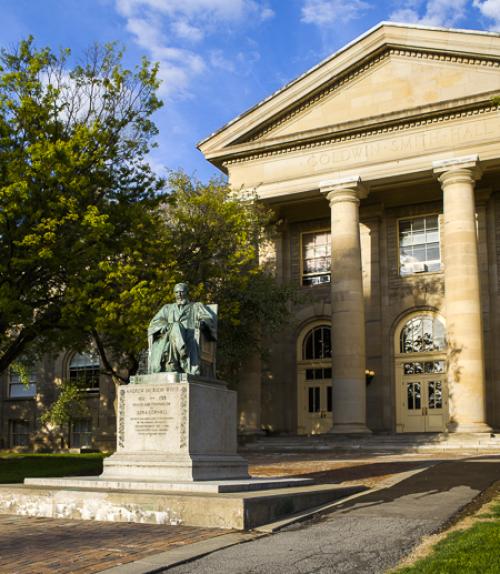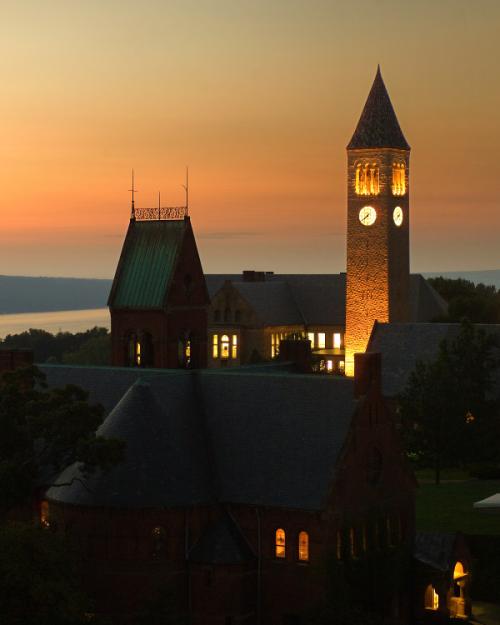Cornell undergraduate students from all majors are invited to compete in The Cornell Mathematical Contest in Modeling (CMCM). This annual competition, slated for Nov. 10-13, allows students to work on open-ended real world problems, showcasing the multifaceted nature of applied mathematics.
During this event, students compete in teams of three to build a mathematical model, obtain a solution and write a detailed paper proving their solution’s feasibility. Competition topics vary widely from year to year: from food distribution in underserved communities to monitoring invasive species in Cayuga Lake and even managing idle ambulances between emergency calls. Participants must be prepared to tackle anything, said Alex Vladimirsky, a mathematics professor who founded the competition in 2002.
CMCM “is very much unlike any math competition,” Vladimirsky said. “It's open books, it’s open everything and the problems are open-ended.”
Students can gain research experience and apply practical knowledge to local challenges, as well as enhance their resume, he said. They also have a chance to win $400 in prizes and qualify for the international Mathematical Contest in Modeling, Feb. 1 to Feb. 5, where they will face over 15,000 teams worldwide for a chance to win $10,000 in prizes.
Whatever your interests and background might be, Vladimirsky emphasizes that this competition requires a diverse range of skills and perspectives. “We’ve had film majors, business majors, and all kinds of students participating,” he said. CMCM is open to all years and all majors because more than understanding mathematical principles, “it’s a team contest, so it’s very much about the ability to work with other people.”
In 2014, for example, contenders were tasked with a problem titled “Warmer Days or Sour Grapes?” Focusing on the impacts of climate change on Finger Lake vineyards, students recommended the best grape variety proportions for each vineyard and a timeline for implementing these changes based on the temperature and wine market prices.
Furthermore, last year’s challenge was determining the optimal highway patrol strategy to minimize speed-related incidents in Tompkins County. According to Ethan Orlowsky, a member of the 2022 winning team, CMCM was an invaluable introduction to real-world modeling. Orlowsky explained, “A lot of the classes and experiences I had as a STEM student involve heavy quantitative analysis, and often ignore the more subjective parts of the problem, or the qualitative side.” Beyond Cornell, “this kind of modeling has given me valuable experience for my role at Sage,” Orlowsky’s current company, “where we try to answer open-ended problems with a mix of quantitative and qualitative data every day.”
For those interested in participating this year, practice sessions will be held in 253 Malott Hall at 4:30-6 p.m. on Oct. 31 and Nov. 6. While not required to compete, these sessions are highly recommended for students new to the competition or those looking to join a team of three. Students can register here until the day of the competition, Nov. 10.
“This contest is not so much about what you know going in,” Vladimirsky said, “ but it’s about what you can learn really quickly and put to good use.”
Hannah Mitchell is a communications assistant for The College of Arts & Sciences.





